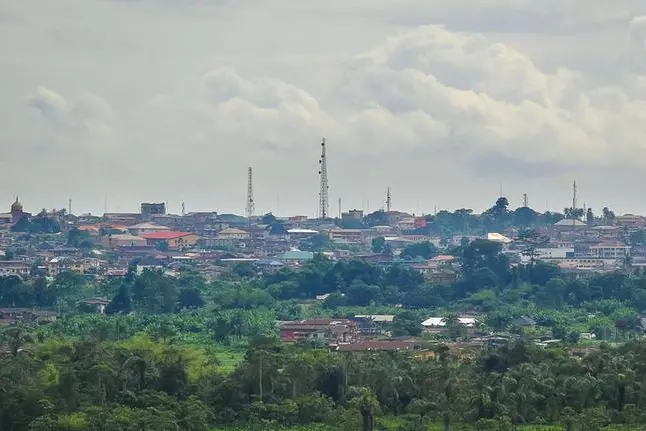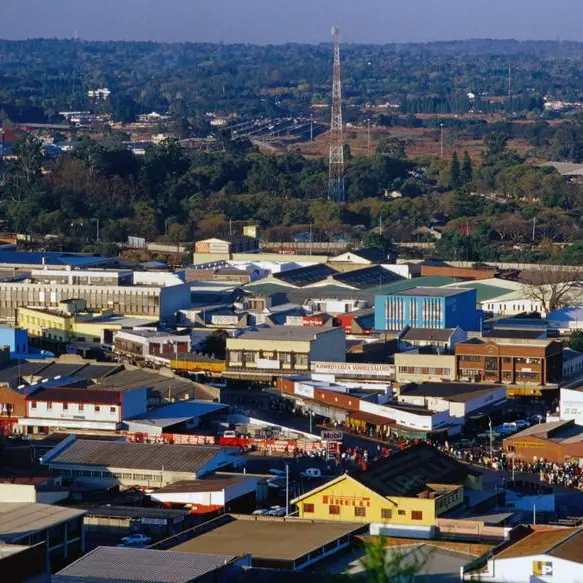PHOTO
Jide Afolabi is a seasoned Micro, Small and Medium Enterprises (MSMEs) specialist with over 15 years of experience in the financial industry. He has played a pivotal role in advising public and private organisations on MSME innovation and development strategies. Afolabi’s work spans both public and private sectors, where he has developed comprehensive business cases, ecosystem mappings and development strategies. In this interview with JOSEPH INOKOTONG, he says Nigeria can enhance the effectiveness of MSMEs by implementing data-driven policies, investing in cutting-edge technologies and fostering public-private partnerships. Excerpts:
FROM your vantage position, how can Nigeria make MSMEs work effectively and contribute to the development of the economy?
It is pertinent to explain that my work focuses on empowering Micro, Small and Medium Enterprises (MSMEs) by providing financial advisory services, business analytics and innovative solutions through platforms like ‘Red Pillar BizNest.’ With several studies centred on ME, my background includes extensive experience in financial advisory, MSME development and community organising, both in Nigeria and the United States.
Nigeria can enhance the effectiveness of MSMEs by implementing data-driven policies, investing in cutting-edge technologies and fostering public-private partnerships. By creating an enabling environment, reforming government policies and addressing challenges such as financial constraints, availability of infrastructures and regulatory barriers, MSMEs can become key drivers of innovation, job creation and economic diversification, ultimately contributing significantly to the country’s economic development.
Growing or expanding the MSMEs sector of the economy is one key strategy to achieve economic growth and development. MSME scalability has become an area of concern for economic growth in many developing economies.
MSMEs are regarded as the bedrock of industrialisation. They constitute the chief supplier of input to larger firms because a number of them possess extensive knowledge of resources, as well as demand and supply trends. They also serve as the main customers to the larger firms and provide all sorts of products, ranging from food, clothing, recreation, etc.
The Federal Government is on the verge of disbursing N1 million intervention funds to each of the about 75,000 MSMEs. How can this be handled to achieve the desired result?
The disbursement should be accompanied by stringent oversight and accountability measures to achieve the desired results. The government should ensure that MSMEs receiving the funds are provided with the necessary support, such as financial literacy programmes, business advisory services and market access. This approach will help maximise the impact of the funds and ensure that they contribute to sustainable growth and job creation within the MSME sector.
Do you think the government is doing enough to grow the MSME sector in the country?
While the government has made strides in supporting MSMEs, more can still be done. The current efforts need to be more coordinated and targeted, with a focus on addressing the root causes of the challenges SMEs face. This includes improving access to finance, reducing regulatory burdens and enhancing infrastructure. A more holistic and collaborative approach involving all stakeholders is necessary to truly unlock the potential of the MSME sector.
What can be done differently that has not been done in the past?
A key area that requires attention is the use of data-driven strategies to inform policy decisions and MSME interventions. By leveraging data, the government can better understand the needs of MSMEs and tailor support programmes accordingly. Additionally, fostering a culture of innovation and encouraging public-private partnerships can help create a more dynamic and resilient MSME sector.
MSMEs are known to be the engine room that powers the economy of many countries like India, Malaysia, Indonesia and others. Why is it not happening in Nigeria?
The primary issue is that Nigeria’s MSME sector has not received the necessary support and infrastructure to thrive. Unlike countries like India and Malaysia, where MSMEs are integral to the economy, Nigeria has struggled with challenges such as inadequate access to finance, poor infrastructure and regulatory bottlenecks. Addressing these challenges requires a concerted effort from the government and the private sector to create an environment where MSMEs can flourish.
The MSMEs account for a large proportion of the total employment growth in many countries. In such countries, MSMEs produce a significant share of their increases in Gross Domestic Product (GDP), while the contributions of larger enterprises tend to remain stable. For example, in the OECD economies, MSMEs and micro enterprises are reported to account for over 95 percent of firms, 60-70 percent of employment, 55 percent of Gross Domestic Product (GDP), and generate the lion’s share of new employment.
In the developing economies, the situation is not very different. For example, in Morocco, 93 percent of firms are MSMEs and account for 38 percent of production, 33 percent investment, 30 percent export and 46 percent employment. Similarly, in Bangladesh, enterprises of less than 100 employees account for 99 percent of all firms and 58 percent employment. Also, in Ecuador, 99 percent of all private companies have less than 50 employees and account for 55 percent of employment.
In the case of Nigeria, well-managed and healthy MSMEs constitute significant sources of employment opportunities and wealth creation. While the citizens benefit in terms of employment and income, the government also benefits by generating revenue in form of taxes. This can be a strong factor in social stability. It is noteworthy that not all MSMEs and micro-enterprises are in the formal sector. Some of them occupy the unofficial labour market, which varies in size from an estimated four to six percent in developed countries to over 50 percent in developing nations.
According to the International Finance Corporation (IFC), there is a positive relationship between a country’s overall level of income and the number of MSMEs per 1,000 people. The World Bank’s Doing Business reports indicate that a healthy MSME sector corresponds with a reduced level of informal or black market activities. Thus, managing the MSME sector to reduce the number of informal businesses is essential in the Nigerian development project.
How long should the country wait to reap the benefits of this vital sector of the economy?
The benefits of a robust MSME sector can be realised relatively quickly if the right policies and support mechanisms are in place. With targeted interventions, Nigeria could begin to see significant improvements in job creation, economic diversification and innovation within a few years. However, sustained growth and development will require ongoing investment and commitment from all stakeholders.
What other suggestion can you give to both the government and MSMEs to stimulate growth and contribute to the overall economy and development of Nigeria?
I suggest the government should focus on building a strong ecosystem that supports MSMEs at every stage of their development. This includes improving access to finance, investing in infrastructure and creating a regulatory environment encouraging entrepreneurship. For MSMEs, it is crucial to embrace innovation, leverage data for decision-making and seek out partnerships that can help them scale their operations. Together, these efforts can stimulate growth and contribute significantly to Nigeria’s economic development.
Copyright © 2022 Nigerian Tribune Provided by SyndiGate Media Inc. (Syndigate.info).





















